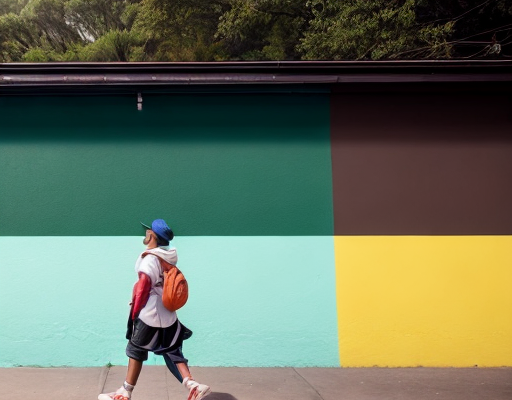
Creative Punishment Alternatives That Teach Lessons
Creative Punishment Alternatives That Teach Lessons
Introduction to Creative Discipline
Discipline is a vital aspect of parenting, essential for teaching children about the consequences of their actions and to help them develop responsibility. Traditional punishment, such as time-outs or grounding, may not always be the most effective way to address behavioral issues. Creative punishment alternatives, explored in this article, can be more impactful, teaching crucial life lessons in a compassionate and understanding way. In the following paragraphs, we will explore alternatives that prioritize learning and personal growth.
Understanding Your Child’s Perspective
Before delving into creative punishments, it’s important to understand why your child behaves in certain ways. Misbehavior can often be a form of communication. Taking the time to understand your child’s perspective can help you select a more effective and educational form of discipline that addresses the root cause of their actions.
Developing Empathy Through Role Reversal
In situations where your child has acted thoughtlessly, a role reversal exercise can be a powerful way to develop empathy. For instance, ask them how they would feel if someone did the same to them, encouraging a discussion around emotions and consequences. These conversations can lead to a deeper understanding and self-reflection.
Converting Misbehavior into Learning Opportunities
Every instance of misbehavior is an opportunity for learning. Rather than simply punishing a child, reframe the situation as a chance to teach valuable life skills. For example, if your child has made a mess, turn the cleanup process into a lesson about responsibility and organization rather than just a chore.
Teaching Financial Responsibility
If the child’s actions have resulted in a financial cost, involving them in the process of earning money to cover the expense can teach financial responsibility and the value of items. Younger children could perform extra household chores, while older kids could consider ways to earn money responsibly in the neighborhood.
Enhancing Problem-Solving Skills
When children misbehave by fighting over a toy or game, use it as an opportunity to teach problem-solving skills. Refrain from immediately solving the problem for them and instead guide them through the process of finding a fair solution themselves.
Improving Behavior Through Positive Reinforcement
Positive reinforcement can encourage good behavior by rewarding the actions you’d like to see continue. Craft a system where your child earns points or tokens for positive behaviors which they can exchange for privileges, enabling them to see the benefits of their good choices.
Setting Clear Expectations and Boundaries
Clarity in expectations and consistency in enforcing boundaries is key to effective discipline. Establishing and maintaining clear rules helps children understand what is expected of them and why certain behaviors are unacceptable.
Encouraging Restitution and Apology
When a child’s actions have hurt others, encourage them to make restitution and offer a sincere apology. This teaches accountability and helps in the healing process. For example, if a child breaks a friend’s toy, they could save up their allowance to buy a replacement or repair the damage.
Creative Ways to Say I’m Sorry
Inculcate creativity in apologies by suggesting your child write a letter, draw a picture, or create a small gift to express their remorse. This could make the process of apologizing more reflective and meaningful.
Replacing Screen Time with Constructive Activities
Rather than enforcing a screen ban as punishment, have your child engage in a constructive activity, such as reading or helping around the house. This approach not only limits screen time but also adds value through productive actions.
Promoting a Love for Reading
Use discipline moments as a chance to foster a love for reading. If a child has behaved inappropriately, require them to read a book on a related subject. This encourages self-education and gives them the tools for better decision-making.
Utilizing Logical Consequences
Logical consequences are directly related to the misbehavior and help children understand the impact of their actions. If a child neglects their bicycle and it gets stolen because they didn’t lock it up, they should contribute to the cost of a replacement or go without until they learn the importance of taking care of their possessions.
Teaching Time Management
If your child consistently struggles with time management, leading to rushed mornings or late homework, create a schedule together. Help them prioritize their activities and understand the consequences of poor time management.
Fostering Self-Discipline and Responsibility
Ultimately, the goal of discipline is to foster self-discipline and responsibility in children. Encourage older children to come up with their own consequences for misbehavior. This empowerment can lead to greater self-awareness and self-regulation.
Building Skills for the Future
Teaching skills like gardening, cooking, or budgeting can be framed as consequences but are in actuality invaluable lifelong skills. This not only disciplines but also equips children with practical knowledge.
Involving Children in Community Service
Community service can be a wonderful punishment alternative. It enriches the lives of others while teaching children gratitude, empathy, and the joy of helping. Choose activities appropriate for their age and interest to ensure it is a positive experience.
Expanding Horizons through Volunteering
Volunteering exposes children to different ways of living and helps them to understand the impact they can have on the world. Encourage your child to volunteer in areas that interest them or where they need to improve their attitude.
Conclusion: Discipline as a Learning Journey
In conclusion, discipline is not just about punishment but about guiding children toward making better choices and learning valuable life lessons. Remember that each child is unique, and so is each situation—creative discipline should be adaptable, thoughtful, and aimed at long-term development. With these alternative punishment strategies, parents can turn moments of misbehavior into opportunities for growth and learning.

